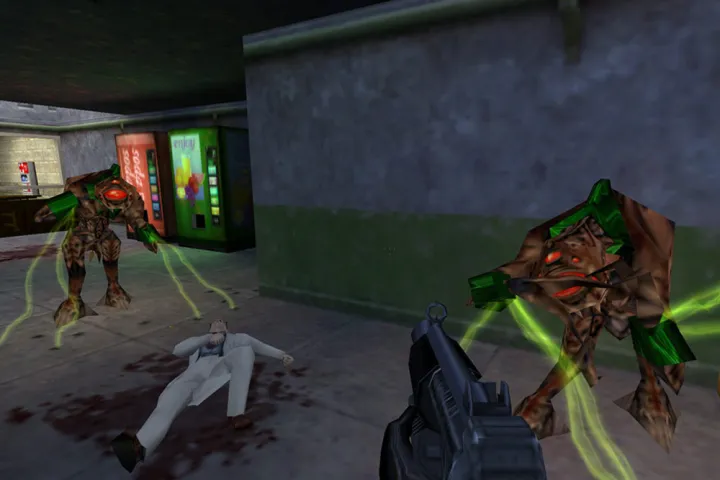
Although Valve is no doubt as tired as many gamers are with the Half-Life 3 jokes which are still bandied around the internet, their continuing existence goes to show how beloved the original series of games was and still is today. While we may never have a completion to Gordon Freeman and friends’ stories, Valve is at least keen on keeping its existing games functioning as best it can.
This latest patch is focused on crash fixes and addresses four distinct ones. One occurred when entering malformed strings into the game console, and another happened when loading a “specially crafted malformed BSP file.” While those are rather specific and it is perhaps understandable why they weren’t discovered before now, another crash that Valve has now fixed was triggered by quickly swapping between consumable weapons.
Custom decals could also cause a crash we’re told, but not anymore.
One potentially more troubling fix that Valve made in this update was in shoring up a hole that made it possible for malformed save files to allow arbitrary content to be written into the game folder. While it’s unlikely that someone would use a near-19-year-old game as an attack vector, stranger things have happened and Valve has taken steps to make sure it won’t be possible with Half-Life.
This is not the only game affected by this update though. This patch has also been applied to a number of other classic Valve games of that era, including Half-Life: Blue Shift and Half-Life: Opposing Force.
The fan response to this update has been pretty positive and while there are the usual jokes about Half-Life 3, with some suggesting Valve should get on with making new games, most seem to be pleased that Valve is giving a little bit of love to its older games so long after their release.
Valve isn’t the only firm that updates old games, though. Blizzard is perhaps the best example of long-term support for its back catalog.



